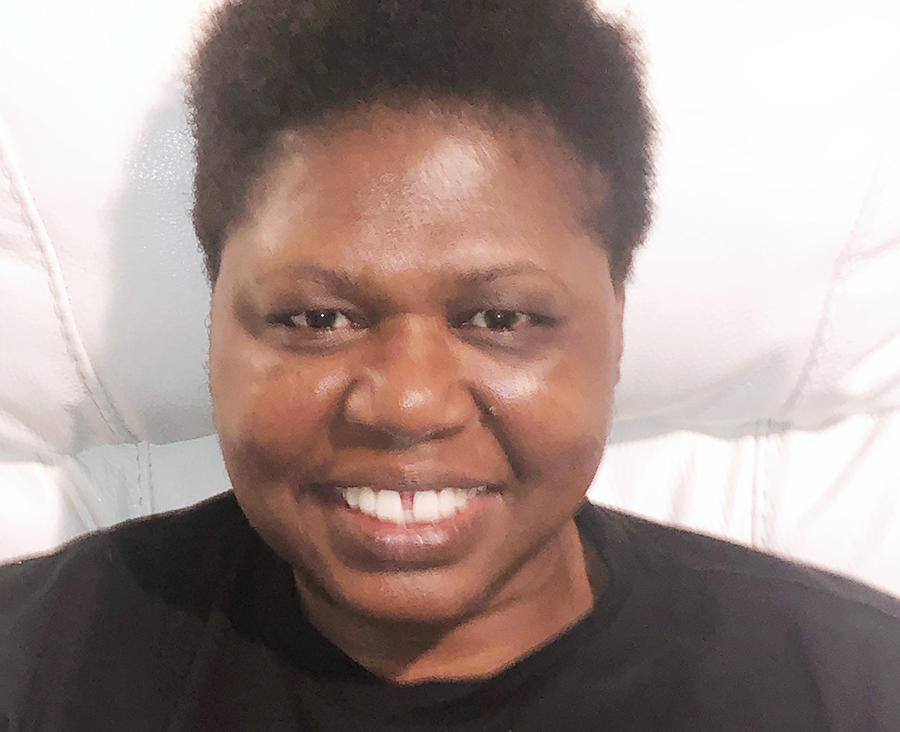Meningioma Survivor Finds Meaning in Rare Cancer Diagnosis
, by Deborah, Meningioma Survivor
Deborah is a two-time cancer survivor. In hopes of helping others, she shares what it is like to live with a type of rare brain cancer called a meningioma.
I am a meningioma survivor. I am also a breast cancer survivor. I am a wife and mother. I know I am a blessed soul. I am sharing my story to shed light on what it feels like to live with a rare cancer diagnosis.
I was born in Mississippi. I earned a Master of Science in accounting and business information systems from Mississippi State University. I worked for the United States Federal Bureau of Investigation for 12 years. There, I met my husband. When he joined the United States Army, we started our military career.
My first brain tumor symptoms were in April 2001. I was 36 years old and had a two-year-old son. We were stationed in New York with my husband. While sitting at my computer that morning, I had a slight headache behind my right eye. It got worse as the day went on.
Since I had not eaten all day, we went out for dinner. I started feeling sick before I finished the meal. I wanted to go home. As soon as we got on the highway, we had to pull over. Vomit was shooting out of me. My vision in my right eye was blurry and the right side of my body was uncontrollably shaking. The projectile vomiting continued every mile or so until we reached the emergency room.
At this point, my head was pounding and all I could do was close my eyes and pray. Doctors started an IV with pain medication and sent me to radiation. The computerized tomography (CT) scan showed a calcified cranial lesion. The doctors scheduled a magnetic resonance imaging (MRI) scan at Walter Reed National Military Medical Center in Bethesda, Maryland. The MRI results revealed a left intraventricular mass.
The mass was small and there was not an immediate concern. The plan was to watch it with imaging every six months. After three years, all scans looked good and there was no growth. My doctor in Louisiana felt that there was no need to continue regular MRIs. I was told 90 percent of these slow growing tumors are benign.
Discovering My Meningioma Diagnosis
For Christmas in 2016, we visited family in Mississippi. I started the day with a headache and it persisted for the duration of our trip. We were stationed in Virginia. I made a neurology appointment with Walter Reed Bethesda.
I learned my lesion had doubled in size. I was diagnosed with a grade 3 anaplastic meningioma. The doctors didn’t know why my lesion kicked into overdrive, but there it was. Even though I knew my brain cancer had to be taken care of, I waited until after my son’s high school graduation in May 2017. Then, I waited until my husband’s retirement from the army in February 2018. I was in denial about my diagnosis.
Finally, I put on my big girl pants. I left the retirement ceremony and checked into Walter Reed Bethesda. A couple of hours later, I was in surgery.
I had no complications after the surgery and discharge was smooth. The next morning, I woke up and cooked my own breakfast. A speech therapist and an exercise therapist came to my home to continue my therapy. I repeated myself a lot and people had to repeat things to me. It took a couple of weeks working on the memory deficits and math issues, but my vocabulary came back. Sometimes my recollection is delayed, but it comes. Three months after surgery, I received six weeks of radiation treatment and had hair loss around my surgical scar. Now, I am doing well and have regular MRIs.
Helping Others Cope with a Rare Diagnosis
My neuro-oncologist at Walter Reed Bethesda, Brett Theeler, M.D., informed me of an outcomes and risk study as part of NCI-CONNECT, which aims to better understand rare brain and spine tumors. I chose to participate because sharing my story could help others with a similar diagnosis.
Expressing my thoughts verbally is not an easy task anymore. Just completing this 600-word paper took 10 times longer than it should. Thinking and typing takes time. My solution to this inconvenience is to take breaks and rest my brain. Closing my eyes slows my brain down enough to catch up with my thoughts and words.
I chose to participate because sharing my story could help others with a similar diagnosis.
I have also made it a point to exercise five days a week. My regular exercise includes walking, tai chi, or strength training with weights and always with music. I still have my faith. I survived an Achilles tendon infection that had doctors contemplating amputation. This brain cancer shall too pass.
Our son is now age 20 and a senior at the University of North Carolina. My husband retired after 29 years in the Army and we moved into our dream home in North Carolina. I smile every day because life is good. I smile every day thinking about my family and what I have overcome and continue to overcome.
